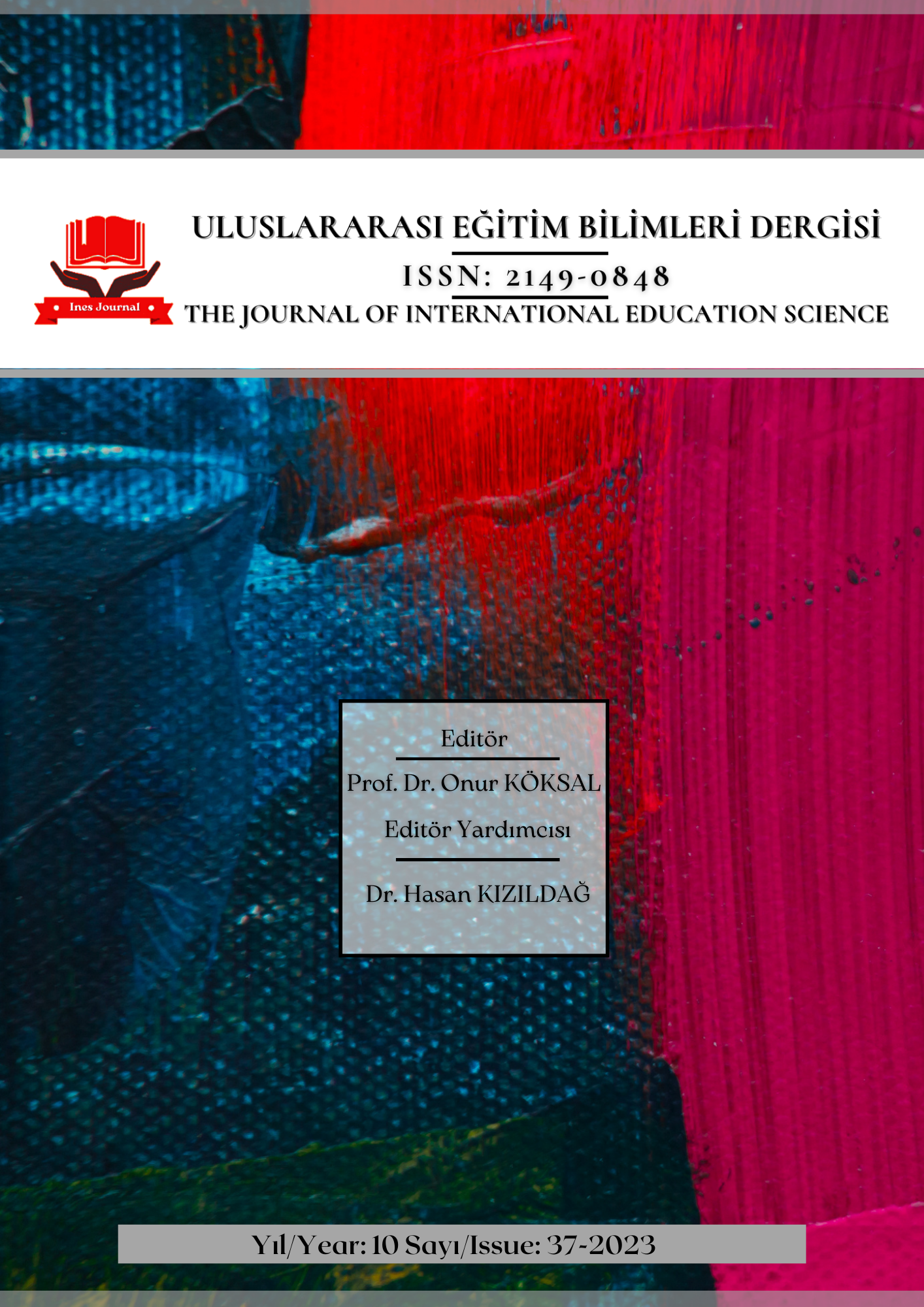Sosyal Bilgiler Öğretmen Adaylarının Çeşitli Değişkenler Açısından Politik Okuryazarlık Becerilerinin İncelenmesi
Author :
Abstract
Politik okuryazarlık becerisine sahip olan birey, toplumdaki diğer insanların düşüncelerini anlama, bu düşüncelerin kendisine etkilerini ayırt etme ve ilgili düşüncelere karşı etik bir şekilde cevap verme becerisine sahip olmaktadır. Politik okuryazarlık becerisi, 2018 sosyal bilgiler dersi öğretim programında kazandırılması hedeflenen becerilerdendir. Araştırmanın amacı geleceğin öğretmeni olacak olan sosyal bilgiler öğretmen adaylarının politik okuryazarlık becerilerinin farklı değişkenler bağlamında incelenmesidir. Araştırmada tarama modeli uygulanmıştır. Çalışmanın örneklemi sosyal bilgiler öğretmenliği ana bilim dalında öğrenim görmekte olan 101 öğrenciden oluşmaktadır. Verilerin toplanmasında Köksal ve Erol (2021) tarafından geliştirilen Politik Okuryazarlık Ölçeği kullanılmıştır. Çalışmada katılımcıların politik okuryazarlık düzeylerinin yüksek olduğu tespit edilmiştir. Ayrıca politik okuryazarlık düzeyleri cinsiyete, ders alma durumuna, yaşanılan yerin niteliğine ve interneti kullanım sürelerine göre anlamlılık göstermezken sınıf düzeyine, gelir durumuna ve seçim anketlerini takip etme durumuna göre anlamlı farklılık göstermektedir. Farklı değişkenlerin söz konusu olduğu politik okuryazarlık alt boyutları için nitel araştırma metoduyla da çalışmalar yapılması getirilen önerilerdendir.
Keywords
Abstract
An individual with political literacy skills has the ability to understand the thoughts of other people in society, to distinguish the effects of these thoughts on himself, and to respond ethically to relevant thoughts. Political literacy is one of the skills aimed at being acquired in the 2018 social studies course curriculum. The aim of the research is to examine the political literacy skills of social studies teacher candidates, who will be the teachers of the future, in the context of different variables. A scanning model was applied in the research. The sample of the study consists of 101 students studying in the department of social studies. The Political Literacy Scale developed by Köksal and Erol (2021) was used to collect data. In the study, it was determined that the political literacy levels of the participants were high. In addition, while political literacy levels do not show significant differences according to gender, course-taking status, quality of place of residence, or duration of internet use, they differ significantly according to class level, income status, and following election surveys. One of the suggestions made is to conduct studies with qualitative research methods for political literacy sub-dimensions where different variables are involved.
